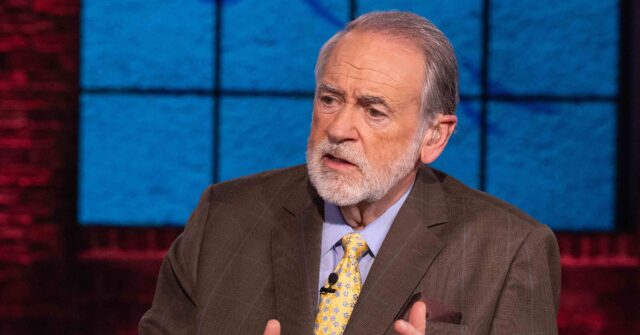Incoming U.S. ambassador to Israel, Mike Huckabee, delivered a significant message at the One Israel Fund’s annual gala dinner, emphasizing unwavering support for Israel in its pursuit of freedom and preservation of its heritage. His remarks were particularly meaningful to a pro-Israel audience amid concerns that President Joe Biden had shifted his stance, leaving Israel feeling unsupported following the devastating October 7 terror attacks. Huckabee’s commitment to Israel resonates deeply with those who believe in the country’s right to defend itself against terror, and his sentiments reflect a growing narrative among certain factions in U.S. politics regarding Israel’s security.
Huckabee’s speech centered on the historical context of Judea and Samaria, also known as the West Bank—a region that holds significant Biblical importance for Israel. In 1947, the United Nations proposed a partition plan that assigned these areas largely to a future Arab state. While Israel accepted the plan, Palestinian Arabs and neighboring countries rejected it, leading to conflict when Israel declared independence in 1948. The historical governance of Judea and Samaria transitioned from Jordan, which ruled the territory for 19 years without making efforts to establish a Palestinian state, to Israeli control following the 1967 Six-Day War.
The Six-Day War marked a pivotal moment in Israeli history, with the Israel Defense Forces (IDF) capturing eastern Jerusalem and all of Judea and Samaria after Jordan attacked. Israel subsequently annexed eastern Jerusalem, home to the Jewish Quarter of the Old City, but hesitated to similarly annex the West Bank territory. In the absence of successful negotiations with Arab states, Jewish settlers began establishing communities in Judea and Samaria—some returning to areas from which they had been previously expelled during earlier conflicts. This development sowed the seeds of long-standing tensions surrounding the question of sovereignty and territory.
The rise of the Palestinian national movement intensified calls for statehood over these areas, although Palestinian leadership has historically rejected multiple peace proposals that would afford them significant territories. As negotiations have stagnated, certain factions within Israeli politics argue for the annexation of Judea and Samaria, suggesting that Palestinians could govern their own communities under an overarching Israeli sovereignty. This contention rests on the belief that a resolution can be achieved through a political framework that allows both Israelis and Palestinians to coexist.
Critics of annexation, however, raise alarms regarding its international legitimacy and potential governance challenges. There are concerns about demographic shifts in Israel, predicting a reduction in the Jewish population’s percentage from approximately 80% to around two-thirds if annexation proceeds without clear terms of governance. Such demographic changes pose questions regarding Israel’s identity as a Jewish state and the implications for the broader political landscape. This has prompted a healthy debate within Israel and among its international supporters about the best path forward for the region.
As the first evangelical Christian ambassador to Israel, Huckabee’s history of advocating for the annexation of Judea and Samaria further underscores the complexities of U.S.-Israel relations. While he acknowledges his obligations to uphold the policies of the incoming Trump administration, many in the Jewish communities see him as a robust ally for their deeper interest in Arab-Israeli relations. Huckabee’s appointment could signify a notable shift toward embracing more assertive pro-Israel policies at a critical time, emphasizing the importance of alliances and advocacy for Jewish sovereignty in disputed territories. This evolving narrative highlights the intricate interplay between domestic politics in the U.S., historical claims to land, and the future of peace negotiations in the Middle East.

